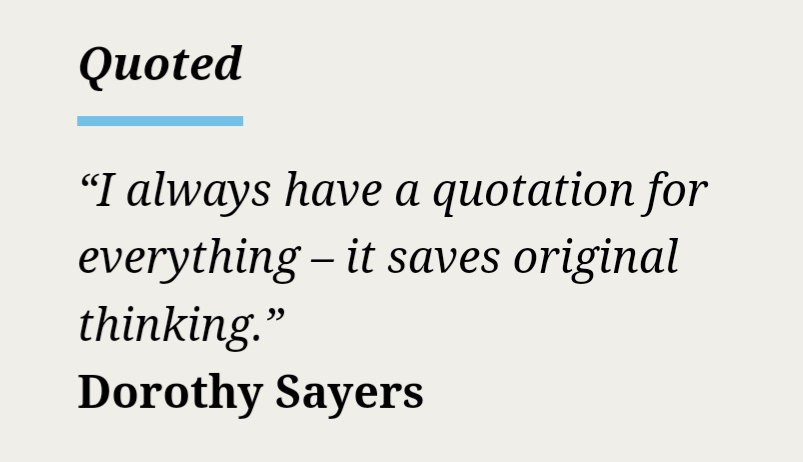Deadly sin stumbles or spectacular speaking successes?
Are you a deadly sinner? One deadly sin of public speaking can wreck your best efforts to give a successful speech, never mind seven deadly sins:
- Do you ever feel as if your nerves might get the better of you?
- Are you guilty of ‘infobesity’?
- Do you tend to overrun your allotted time?
- Are you someone who never has enough time to prepare?
- Do you wish you could speak as well as someone else?
- Do you find yourself apologising if you make a mistake
- Is the spotlight all about you?
As a speaker, it is too easy to commit a deadly sin when talking to an audience. Prompted by the seven deadly sins, here’s my take on seven behaviours we should try to eradicate from our public speaking and presentations and steps we can take to do so.
I’m so nervous – the deadly sin of Lust
 Lust may manifest itself as approval seeking. Such speakers desire success, they want their audience to love them and may even criticise other speakers, exaggerate their own abilities and encourage hero worship from their listeners.
Lust may manifest itself as approval seeking. Such speakers desire success, they want their audience to love them and may even criticise other speakers, exaggerate their own abilities and encourage hero worship from their listeners.
The problem with this deadly sin is that it tends to result in feeling really nervous. With the desire for success comes the fear of failure. Fear and nerves are very likely to sabotage the very thing you desire.
By imposing so much pressure on yourself, it’s no wonder that Jerry Seinfeld was able to observe that “to the average person, if you go to a funeral, you’re better off in the casket than doing the eulogy”.
And if we accept the words of Mark Twain that “There are two types of speakers: those that are nervous and those that are liars”, then we probably all have a bit of lust lurking within us.
What can you do about your nerves?
Try thinking about nerves simply, as adrenaline. Adrenaline can either work with you as positive energy that you want to share with your audience or as negative anxiety that can make your brain freeze and overwhelm you with fear. Ask yourself why you are really speaking. Is it to satisfy your deadly sin of ‘lustful’ desires or because you have something to say that is important to you and of value to your audience. The second perspective will help you befriend your nerves
Infobesity – the deadly sin of Gluttony
 Gluttony or ‘infobesity’ tends to manifest itself in speakers saying too much and often brings with it an unintended side effect of speaking too fast.
Gluttony or ‘infobesity’ tends to manifest itself in speakers saying too much and often brings with it an unintended side effect of speaking too fast.
Saying too much
When you know a lot about something or you’re really passionate about a subject, it is tempting to want to share everything you know with your audience. But think about how long it has taken you to develop your enthusiasm and accumulate all your knowledge … Months? Years? Now compare that with the length of your speech … 10 minutes, 30 minutes, 1 hour? You cannot realistically hope to share with an audience everything you know about a subject in such a short space of time and expect them to take it all in. It’s just too much information!
What can you do about saying too much?
The speaker’s responsibility is to define a clear goal or message and only include information that serves that purpose. If it doesn’t support your message, remove it.
Develop a mantra – Less is Always More!
Speaking too fast
An unfortunate bi-product of having too much to say and being nervous is that we tend to gabble and speak far too quickly. We forget to breathe. We’re afraid of silence. Public speaking is not a conversation with a few mates. While a conversational style can be very appealing, giving a successful speech needs us to slow down and speak clearly.
What can you do about speaking too fast?
Slow down!
As a rough guide, I, personally, aim for about 90-100 words a minute. There seems to be little agreement about average numbers of words per minute in conversation, but the range is generally around 130 to about 225 words per minute. We have the ability to listen at a faster rate than we can speak – some say 500-600 words per minute – but can you really absorb what is being said at that rate … and would you want to?
By slowing down, you achieve three important goals:
- You have time to draw breath and pause. This helps you relax as a speaker and gives your audience to consider their own experience of what you are saying
- It gives your audience time to absorb and reflect on the meaning of your words
- You have time to strengthen the delivery of your message with powerful body language and interesting vocal variety.
Time theft – the deadly sin of Greed
 As a speaker, you have an allotted speaking time. You have a responsibility to stick to your allocated time. Overrunning is a deadly sin. It’s disrespectful to other speakers, the organisers of the event and your audience who may switch off when you talk for too long or leave the room because they have somewhere else to be.
As a speaker, you have an allotted speaking time. You have a responsibility to stick to your allocated time. Overrunning is a deadly sin. It’s disrespectful to other speakers, the organisers of the event and your audience who may switch off when you talk for too long or leave the room because they have somewhere else to be.
As listeners, our attention spans are short. Some say as little as 8 seconds, less than a goldfish! While the numbers may be exaggerated, our ability to stay focused and absorb information is limited. This is why speakers need to say less and deliver with dynamism, contrast and colour to make what you have to say interesting and memorable.
What can you do about time theft?
Manage your infobesity – remember your mantra: Less is Always More.
Be clear about why you are giving the speech and your message. Strip out all information that doesn’t directly support your message.
Have you ever heard anyone complain about a speech being too short? Prepare less content than you think you need. For instance, if you have a 15-minute speaking slot, prepare 10-12 minutes at most. Once in front of an audience, your delivery is likely to be slower and you also need to allow time for audience reactions, such as laughter.
Then practise your speech, out loud, with a timer to gauge the length. If you overrun, edit and make some cuts or add some powerful pauses to your delivery so that you keep to your allotted time, with time to spare!
Failing to prepare – the deadly sin of Sloth
Sloth or laziness is failing to prepare and rehearse, as well as failing to learn and improve.
I cringe every time I hear someone say they are ‘winging it’. Almost invariably, the speech is disappointing. In the words of Benjamin Franklin “By failing to prepare, you are preparing to fail.” When you do this, you let down yourself and your audience.
When you practise your speech, invite feedback from your colleagues and friends. When you deliver your speech, invite feedback from your audience. These are all great opportunities to improve your speech and develop your speaking skills.
What can you do to prepare?
 Our mantra is practise, practise, practise!
Our mantra is practise, practise, practise!
“But I don’t have time”, I hear you cry. Such excuses might be considered a deadly sin in their ow right! In my experience, you can usually make time, but you need to be smart about it. For instance, when you are walking to catch a bus or a train or standing in a queue, practise your opening and close. Grab a coffee with a friend or colleague and try out a couple of paragraphs on them. Practise in the shower. Practise while you’re hoovering, walking the dog or out shopping. The opportunities are endless. Find the ones that work for you.
You need to practise what you want to say (content), how you say it (word selection, body language, vocal variety) and ensuring your message is clear and memorable. In this way, not only do you deserve the opportunity to speak, but you also show respect for your audience as the people on the receiving end. Remember, every speech you give is also a learning opportunity to help you become a better speaker.
Losing control – the deadly sin of Wrath
Outright wrath or anger is, fortunately, rare in public speakers, unless you find yourself listening to the likes of Basil Fawlty! However, instances of the deadly sin of anger can show up in a number of unwanted ways.
Perhaps the most common presentation of ‘anger’ is an apology. It is not uncommon for speakers to say sorry if they make a mistake or forget to say something; mistakes or omissions that your audience probably only noticed because you drew attention to them by apologising.
Some speakers can feel irritated and unsettled if their audience isn’t behaving exactly as they expected, eg audience members whispering to a neighbour, doing something on their phone, etc. They may also be upset with the organiser if there is an equipment malfunction.
What can you do to keep calm?
 Remember why you’re giving a speech – because you have something to say that is important to you and of value to your audience. It is not a memory test, so don’t worry about saying something differently from the way you practised it. No one knows except you!
Remember why you’re giving a speech – because you have something to say that is important to you and of value to your audience. It is not a memory test, so don’t worry about saying something differently from the way you practised it. No one knows except you!
Don’t let technical malfunctions annoy you and waste your precious speaking energy. These things happen. By making sure you are well prepared, know your material and have rehearsed, you should be able to deliver a compelling and engaging speech without technical support. What’s more, you will have the sympathy of your audience and the gratitude of the event organisers.
If a few members of your audience seem a little distracted, remember you don’t know what they’re doing and there’s nothing you can do about it anyway. Getting angry is no good for you or your audience. Be patient and understanding. They might be saying they totally agree with you or tweeting about what a wonderful speech they’re listening to! Focus instead on the engaged members of your audience. The others will come back when they’re ready.
I wish I could speak like that – the deadly sin of Envy
Envy is the desire to be like someone else, to have the speaking skills of someone else, like, Alex Polizzi, Barak Obama or Jeanette Winterson. This deadly sin can make us come across as unduly deferential, which can convey deceit.
What we need to do is be ourselves. As Judy Garland advised “Always be a first-rate version of yourself, instead of a second-rate version of somebody else.”
As speakers, envy can be a calamity. You need to recognise the importance of being yourself, being authentic in everything you say, the way you say it, your body language, voice, etc. If you cannot communicate authentically, audiences will know. They see the deceit and then they don’t feel comfortable, they don’t trust you.
But it goes beyond trust, you need to be authentic if you are to create powerful connections with your audience. For it is those connections that make your speeches enjoyable and memorable. It is those connections that allow your speech to touch people’s hearts and minds and have an impact on them.
What can you do to be authentic?
First and foremost, be yourself. It is you, after all, that people have come to hear. They want to know a little about you, they want to connect with you. Think about the qualities and characteristics that make you feel good about someone. To get this across in your speech, try telling relevant personal stories and anecdotes, use appropriate self-deprecating humour and don’t be afraid to show your vulnerable side.
Me, Myself and I – the deadly sin of Pride
 Pride is excessive belief in your own abilities, ideas and opinions; you might also call it ‘arrogance’. Such speakers love the sound of their own voice, their own message or point of view. Because of this, they tend to speak for their own validation and they generally fail to connect with the needs and interests of their audience.
Pride is excessive belief in your own abilities, ideas and opinions; you might also call it ‘arrogance’. Such speakers love the sound of their own voice, their own message or point of view. Because of this, they tend to speak for their own validation and they generally fail to connect with the needs and interests of their audience.
Pride may well be the most heinous public speaking deadly sin, rearing its ugly head in all the previous sins. Furthermore, focussing on ‘Me, Myself and I’ puts a huge amount of pressure on you every time you step in front of an audience. The spotlight is on you and you have to get it right. No wonder we feel nervous.
Pride will encourage infobesity, overloading your speeches with content, maybe even ‘bulldozing’ your audience and overrunning your time allocation. Pride will probably persuade you that you don’t need to prepare or practise and make you spiral out of control, all wrapped up in your own little world.
The best speakers want to share something of value with their audience, something that they care about and that will benefit their audience. An audience always wants to know “What’s in it for me?” A good speaker will show their audience the answer in everything they say and do on stage. They understand that speaking is about knowing and connecting with an audience.
What can you do to banish pride?
Make your audience your focus because your speech must always be about them and never about you. By agreeing to speak, you are also taking on a responsibility to find out about your audience. You need to learn what they already know about your subject or point of view, how do they behave, what is their experience, how homogenous or polarised is the group, what will they think of your message, what’s the best way to talk to them and so on. In short, know your audience!
Imagine yourself sitting in that audience. How would you feel experiencing your speech? Is it new information? Is it clearly structured and signposted? Do you feel comfortable? Is the delivery interesting and engaging?
Your mantra should be the audience asking “What’s in it for me?” Crucially, your job is to prepare, practise and deliver a speech that shows them.
By banishing the seven deadly sins banished from your public speaking life, you can look forward to making clear, connected and memorable speeches, which will be enjoyed by both you and your audience … not a deadly sin in the room!






